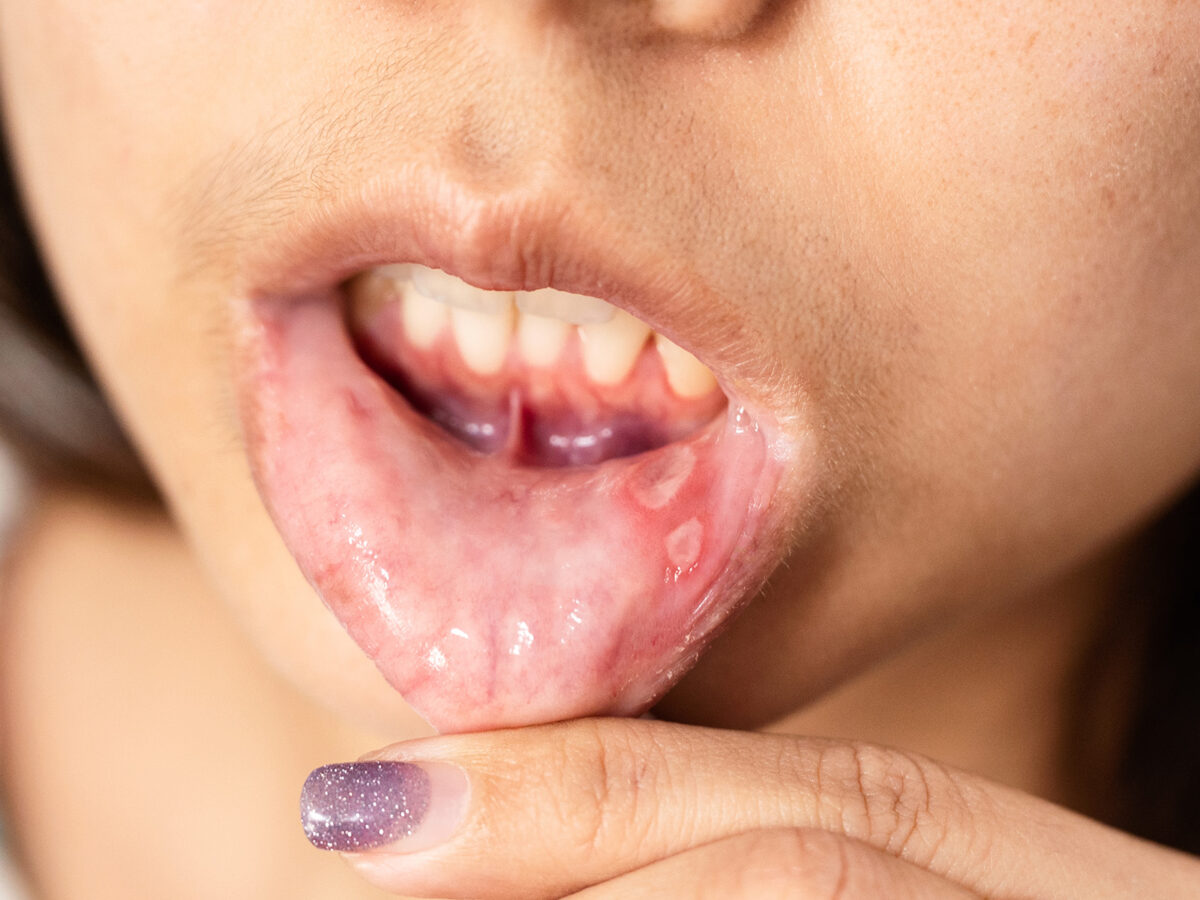Blog
Dental hygiene tips for healthy teeth & gums

How To Prevent Mouth Sores And Most Effective Ways To Treat Them
Mouth or canker sores are widespread, and one can identify them easily. They are painful and uncomfortable but mostly not a cause of concern. They are usually harmless and clear up within one or two weeks. You can easily manage mouth sores at home without a clinical visit.
Mouth sores (aphthous ulcers) occur inside your mouth, on cheeks, tongue, lips, or gums. They make eating or drinking many of your favorite foods and drinks difficult. These blisters should not be confused with cold sores, which are small lesions that occur on the lips and around the mouth. Cold sores generally start with an itching, burning, or tingling sensation around the mouth.
Here you will find all the details you need about mouth sores beginning with what canker blisters look like, how to manage them at home, and when to seek professional care.
What Are Mouth Sores?
Aphthous ulcers appear in the lining of your mouth as small or shallow blisters.
- The lesion starts as a white or yellowish blister on the mouth, having a red border.
- Canker wounds are tiny, usually less than 1 millimeter but may grow to a diameter of half to one inch.
- Canker lesions can appear on the roof of your mouth, gums, tongue, or inside of your lip.
- You can have more than one canker ulcer at a time.
- Though some risk factors lead to mouth sores, the exact cause of such blisters is still not certain.
- Most canker blisters do not need medical attention and heal by themselves within a maximum of two weeks.
Types of Mouth Sores
Canker wounds are of two types:
- Simple – These sores appear three to four times a year and do not last more than a week.
- Complex – They are not so common and appear mostly in people who have had canker wounds earlier. They are larger and more painful and can last up to a month. They often leave a scar. These wounds are mostly due to underlying conditions, for instance, a weak immune system, vitamin deficiencies, Crohn’s disease, etc.
Treating Mouth Sores
In general, you do not need to treat aphthous ulcers as they clear up by themselves. But to reduce swelling and discomfort, you can try the following remedies:
- Self-care:
- Use a mixture having half water and half hydrogen peroxide and rub it directly on the sores with a cotton swab.
- You could also dab some milk of magnesia on the lesion to lessen inflammation.
- Use toothpaste that does not have sodium lauryl sulfate, as this substance may irritate the blisters.
- Avoid eating spicy, acidic, salty, or hot foods and drinks till the blisters heal.
- Use a straw for drinking cold drinks.
- Use salt water to rinse your mouth.
- Apply fresh aloe vera gel (from the plant) directly to the blisters. You could even drink aloe vera juice to alleviate discomfort.
- Apply apple cider vinegar on the wound, as ACV has antibacterial properties that can aid in clearing up the sores. Mix two parts water and one part ACV, dip a cotton swab in this solution and apply it to the wound. Make sure you apply it carefully, as vinegar can damage the enamel of your teeth.
- Pharmacy medicines
- You could use over-the-counter antimicrobial mouthwashes that can speed up the healing of sores. Do not use these mouthwashes on children below two years.
- If you take some supplements like zinc, Vitamin C, lysine, and Vitamin B Complex at the onset of lesions, they can help in fast recovery.
- You could take painkillers which are available in the form of gel, lozenge, spray, etc.
- Corticosteroid lozenges can speed up healing, but they are most effective when used as soon as the blisters appear. These should not be used for kids below the age of twelve.
When To Seek Professional Help?
You might need to talk to your doctor if any of the following applies to you:
- The blisters do not improve and persist for more than two weeks.
- Even when you treat them with home remedies, the wounds keep getting worse.
- You get them very often, i.e., more than two to three times a year.
- You have other accompanying problems such as fever, headache, diarrhea, skin rash, etc.
- The wounds are large (more than one to three centimeters in diameter).
- You get new sores before old ones have healed.
Summing Up
Mouth sores are a common condition and, in general, do not need medical attention. They mostly clear up within two weeks. You can manage pain and swelling using some of the home remedies described in this article.However, it is advisable to see a doctor if mouth sores do not clear up naturally within two weeks.
